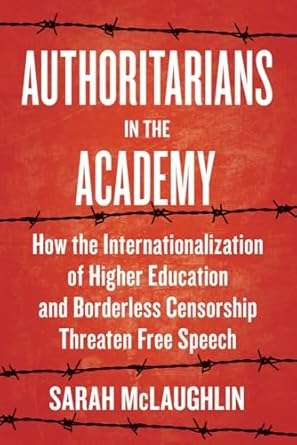The establishment of satellite campuses by universities in foreign countries often leads to complex interactions between local laws and academic freedoms. This has been exemplified by recent discussions surrounding Northwestern University’s campus in Qatar. In an interview on August 5, 2023, outgoing president Michael Schill addressed the challenges faced by the university as it navigates local legal restrictions while attempting to uphold its commitments to free speech and academic freedom.
The tensions between American-style academic freedom and the laws of host countries have come to light in various incidents. Schill confirmed Northwestern Qatar’s adherence to Qatari laws but expressed uncertainty about how these laws impact free speech on campus. He stated, “I believe that we have Qatar, the university… has the same academic freedom and free speech that our domestic campus has in the United States.” This assertion raises critical questions about the reality of academic freedom in a context where local laws may impose significant restrictions.
In the early 2000s, the partnership between Northwestern and the Qatar Foundation led to the establishment of campuses in Education City, funded by billions of dollars from the state-linked organization. Critics have since questioned whether the financial benefits gained from these international ties justify the limitations on free expression faced by faculty and students.
One significant incident occurred in February 2020, when Northwestern Qatar planned to host an event featuring Lebanese indie rock band Mashrou’ Leila. The band’s lead singer is openly gay, leading to widespread backlash in a country where same-sex relationships are criminalized. Following public pressure, the event was canceled, with Northwestern citing safety concerns for the band and its community. The Qatar Foundation, however, contradicted this explanation, stating that the event was canceled due to its incompatibility with local laws and cultural norms.
In 2022, the controversy surrounding the cancellation resurfaced when Craig LaMay, then dean of Northwestern Qatar, revealed that the Qatar Foundation had directly ordered the cancellation due to the lead singer’s sexuality. This admission has drawn attention to the extent to which universities may compromise their stated values in deference to local legal frameworks.
The evolving policies at Northwestern reflect the growing concerns regarding academic freedoms at international campuses. In 2021, the faculty senate revised its academic freedom policy to acknowledge that while academic freedom exists, it may sometimes conflict with established legal frameworks. The updated policy removed the phrase “to the extent that applicable laws allow,” indicating a shift in how the university defines academic freedom in relation to local laws.
Research conducted for the book Authoritarians in the Academy by Sarah McLaughlin highlights further changes in student rights at Northwestern Qatar. Previous commitments to protect student speech have been altered, with new policies emphasizing “legitimate” classroom discussions rather than broader freedoms of assembly and expression. These modifications suggest a narrowing of the academic freedoms originally promised to students.
As universities increasingly look to expand their global presence, the challenge remains: how to maintain commitments to free speech and academic integrity while operating within legal and cultural constraints of host countries. The situation at Northwestern Qatar serves as a cautionary tale for institutions navigating the complexities of international education in a world where local laws can sharply conflict with the principles of academic freedom.
The implications of these challenges extend beyond individual institutions, raising questions about the future of higher education in an interconnected world. As universities weigh the benefits of expansion against the potential for censorship, the pursuit of knowledge and the exchange of ideas may become increasingly constrained in environments governed by restrictive legal frameworks.
Further analysis of the evolving landscape of higher education censorship, particularly in regions like Hong Kong, will continue to shed light on the global implications for academic freedom.





































































